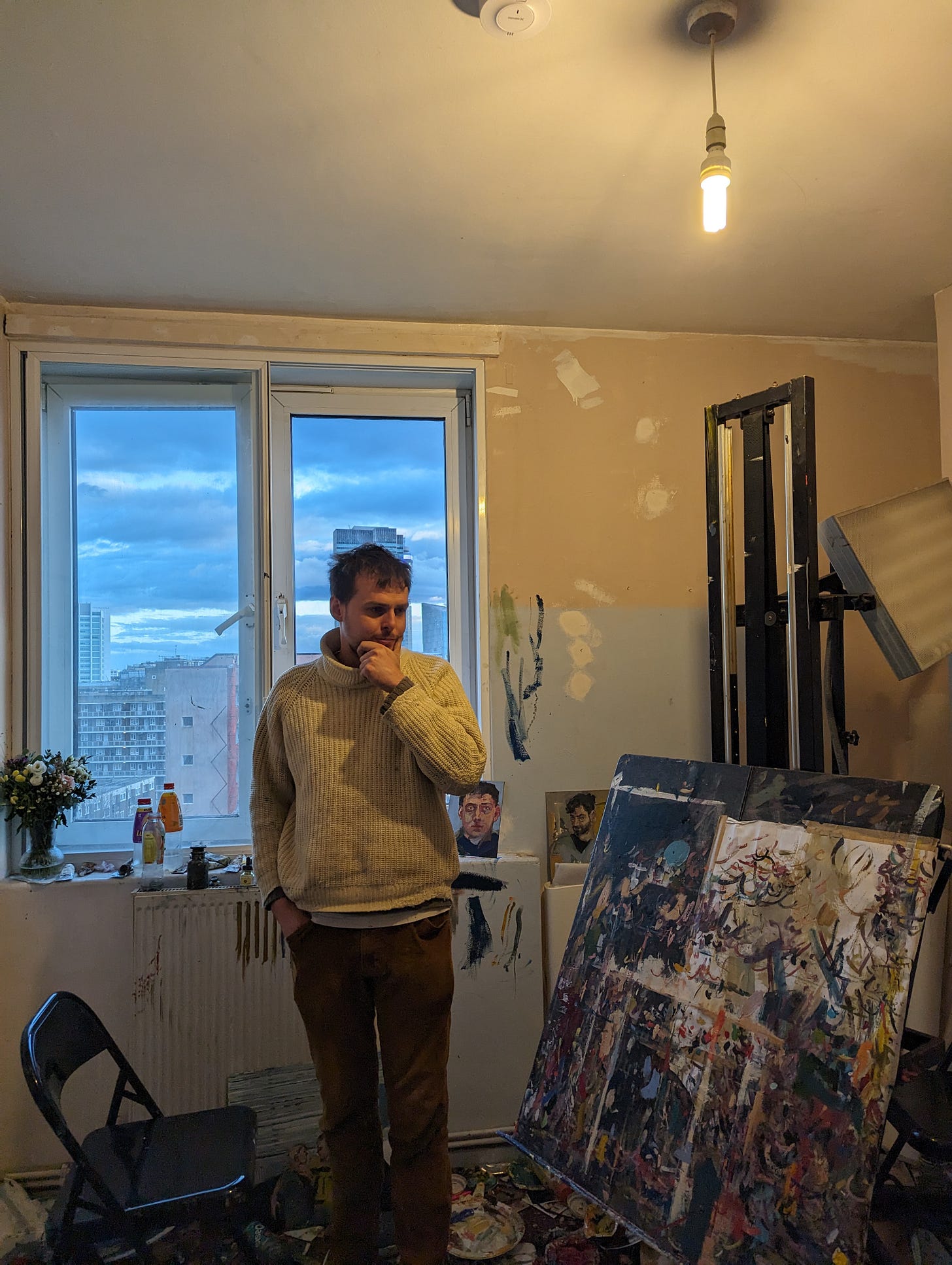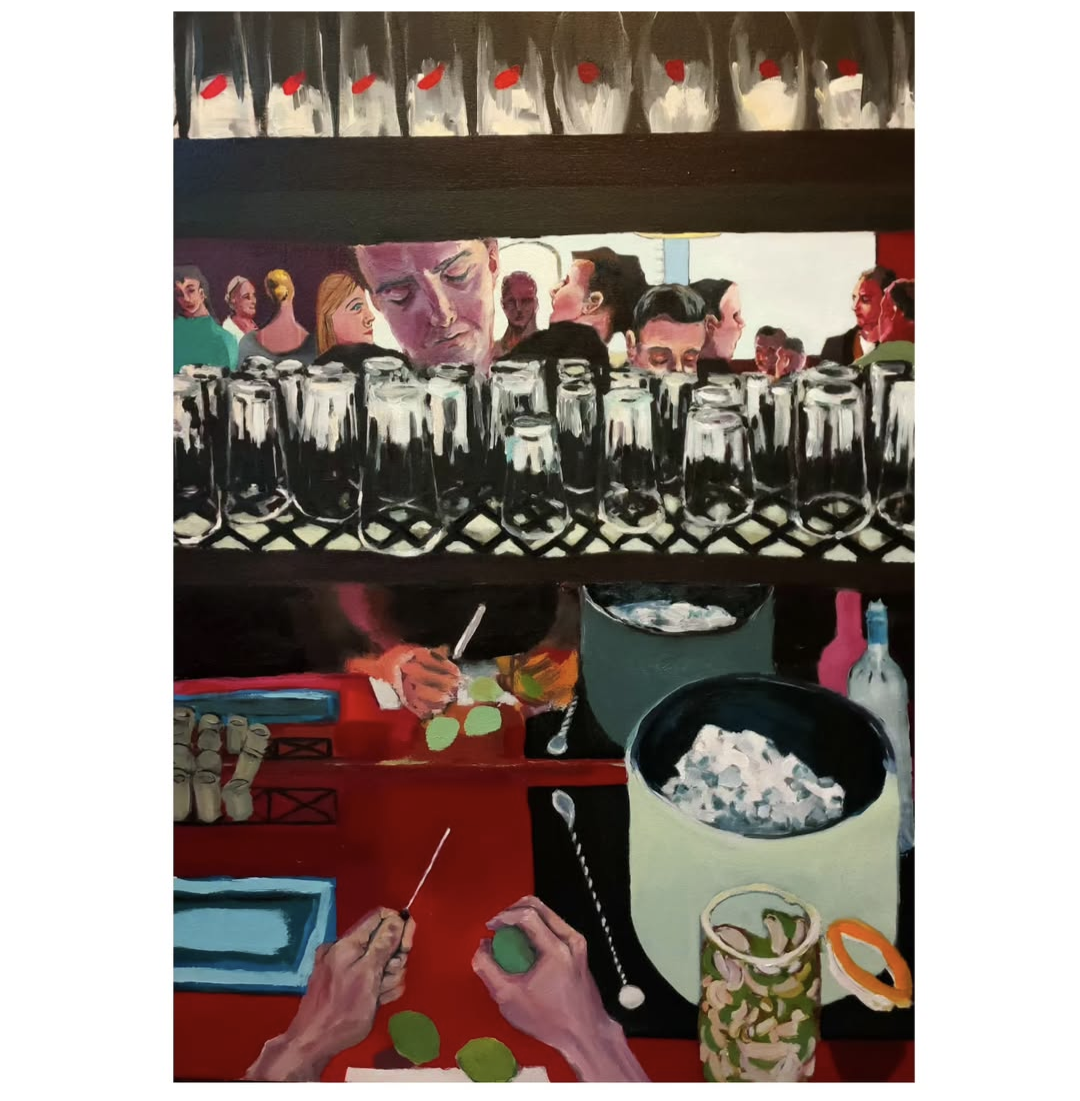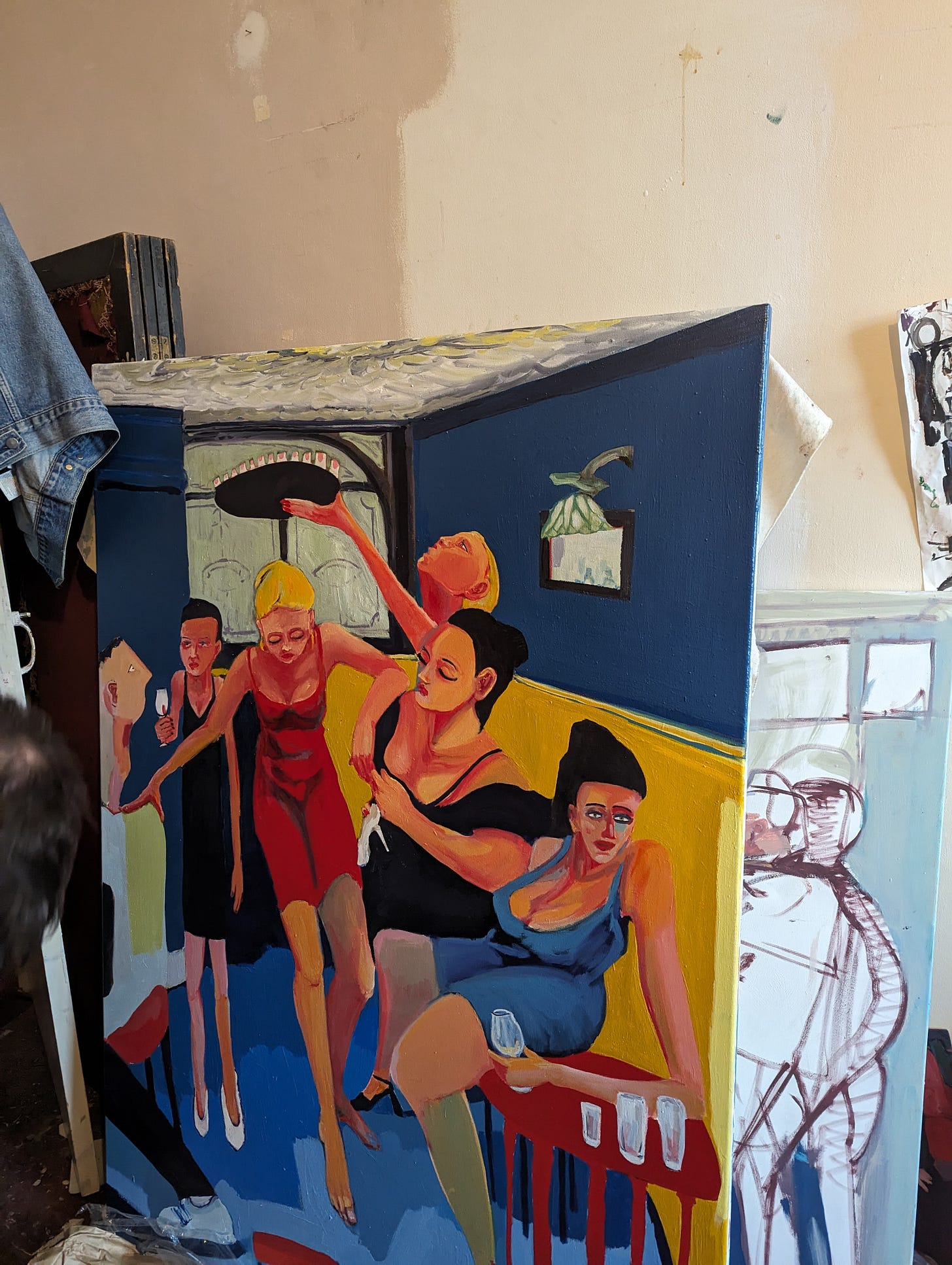Hello again,
I had a piece out this week about something which has been bugging me for a little while, the strangely conservative bent of heteropessimist discourse and the film Companion, which I did not like at all.
I noticed a little while ago that a lot of my non fiction writing is concerned with the idea of agency. It is fashionable at the minute to write about how little agency we have, and I talk about this in that piece too. I, unfashionably I suppose, often argue the opposite. I noticed more recently that my fiction is concerned with characters who exert their agency too, often in destructive ways, but they exert it all the same. I actually think this is related to where I grew up, in an interesting way, but that is a longer paragraph for something else or a passage to live in my emails forever.
I think everyone should just make the work they believe in whether it's fashionable or not because otherwise what’s the point? Somebody has to be the one, or one of the handful of people, saying this or that thing they think is true or nobody will say it. Which brings me to my topic for this week, my dear friend Felix’s paintings. Here is an Instagram with all the paintings.
Not that they are unfashionable. Or actually it doesn’t matter whether they are or not. They are objectively brilliant paintings. I have two in my flat and everyone who comes spends a long time gazing at them and then creeping up to them to look at certain elements in more detail. Felix was the first person who taught me that you should just make the work you believe in, and if you think that is important to do then it is important to do. I would be a very different person if we had never met, and a much less interesting one (a worse one I think).
If you have read a few of my essays you have probably met Felix on the page before. He appears as a character again and again. Here or here or here. Once, when I wrote about gossip, the essay ended up on This American Life and one of the fact checkers had to phone Felix to check the story and he panicked and put on a sort of “alright guvnor” accent when he started speaking to them and then had to talk like that for the duration of the call. He also, almost like a nervous tick, kept saying “scallywag” during the call. He often appears in my essays because he has interesting things to say about people, he sees people in a unique way. This is one of the things that makes his paintings excellent.
We first met years ago. We lived in a house in North London with my other dear friend Alice, when Alice and I first moved to London and started terrible graduate jobs and Felix was finishing his undergraduate studies at Central Saint Martins. He has done other similarly prestigious art world things since. There were a few other rooms filled by a rotating cast of characters. Felix called their various spells in the house the different seasons of the sitcom.
When people write about their London flats in their twenties they often take care to describe how horrible they were. It was a mouldy flat with dust on the stairs and hair on the carpet and so on. When I read this kind of description I tend to think: Well why didn’t you hoover then? If there was dust on the stairs and hair everywhere.
I didn’t think that house was horrible at all. None of us did. We all had decent sized bedrooms. The landlord was crap and a bully as they basically always are, but one of my great offerings as a housemate is that I can fix almost any boiler fault, which actually removes a significant amount of the contact you might usually have with a landlord. There was a sofa big enough for friends to stay after parties or for weekends. Sometimes you would come down in the morning and a stranger's face would emerge from a pile of blankets, a guest who had stayed after a drunken night, and you would spend a few hours having tea with them and talking about their recent breakup or their plans to go traveling or whatever it was. And then you might not see them again for years, but when you did you would greet each other like old friends because of the intimacy you had shared that morning.
Felix worked in a pub and he always wore these very clattery shoes that sounded, as they went up and down the stairs when he came back after a shift in the middle of the night, as if they were made of heavy wood. And you might wake up and shout into the garden at him and whoever he was drinking gin with to take the shoes off, for the last time, to stop wearing the shoes in the middle of the night. And then you might have a screaming row which ended in you coming down to the garden to drink gin too.
If anyone had a break up Felix would prescribe gin. Or if someone met a man on a night out and swapped numbers and then we all designed a fantasy where he was the most handsome and funny and clever man who had ever lived and they went on the date and it turned out he was more on the bad side of normal, there was gin for that too. There was gin if you went on a Tinder date and you arrived and the person was wearing a horrible big purple coat. There was gin if someone you had had a thing with a while ago got back in touch because they had suddenly got married on a beach. There was triumphant gin if someone who had previously rejected you decided in fact that they loved you.
Once I slept with someone to, in a complicated way, get revenge on behalf of a friend of mine. In the morning he wouldn’t leave my room. His dad even phoned and he answered the call and told his dad he’d had a bit of a late one and then winked at me. “Help!” I texted Felix and Felix banged on the door and declared we were late for a wedding. We both got dressed as if for the wedding to send this man on his way. When he left we hit the nearby Wetherspoons.
Felix’s room was always such a mess that when we did tours of the house we showed it as if it was an exhibition, or like it (the room I mean) was a circus animal and we were inviting people into its cage. I went to see his studio recently and it was exactly the same as that room. Splashes of paint everywhere, and a sort of swirling, grand mess on the floor. The kind of mess where you can’t really say what exactly it is made of. The kind of mess which is much greater than the sum of its parts. There are bits of paper there, and you can see a paintbrush in one corner, but then somehow that covers the entire room.
I noticed a splash of beautiful vivid dark green on the floor and then realised it was the same green as a painting he is working on at the minute. People who make art need different kinds of spaces. One kind is this disorder and chaos, which can generate ideas and unexpected links. Felix explained, on days when it is hard to paint, he finds objects he has made for himself weirdly inspiring, like a mug made to store brushes. Because looking at it you remember that making something is not so hard. (I feel the same about this substack actually, I write it about whatever I want and it reminds me you can write however you like about whatever you want.)
He told me: “Sometimes I just look at it [the paint covered mug for brushes] and think: You’re wonderful.” I wonder if the swirling generative mess of the studio has a similar quality. It is a reminder of all the steps taken, things you have done and tried and failed at or got to work in the end. A reminder that all you need to do is try again. And again and again and again. But why not? What other, better thing would you be doing with that time?
The studio was full of something else I am familiar with. Felix’s way of telling stories about people, the thing that makes him appear all the time in my essays, is in his paintings too. You see the figures in unguarded moments, whispering to each other in bars. Their limbs are often slightly stretched or otherwise warped. I have always read this as a sign of their discomfort. Felix sees them feeling slightly out of place and then paints that feeling clearly so it cannot be avoided, instead of smoothing over it. And this warped figure becomes a captivating one.
Or in this one below (called the Essex Girls for now) the women seem to swell in each other's presence. They look like they are about to walk out of the painting. As I read it, the community they have made is almost too big for the bar, the world, to contain them.
Almost all the figures in Felix’s paintings are in public places, but you can fold yourself away into your private world in public and they do. In one a worker is on view to the whole street, as I imagine it, in his own world. In another a man is chopping fruit while the night unfolds behind him, eyes closed in thought. The first time I saw this one I spent a while thinking about the rest of his life. Then I noticed the painting is full of different lives and I spent time thinking of each of those. I see so much compassion for other people in this work. I think that’s why I like looking at them so much.
After we went to the studio we went for a few pints in a slightly bizarre Irish pub. We talked about art and books and people we know. It was one of those days that made me feel lucky for my life. And I do feel like that quite a lot. I never thought I would have a life like the one I do now, with friends who are writers and painters, even being a writer and critic myself. And I probably wouldn’t if I had never met Felix.
Till next time xxxxx












